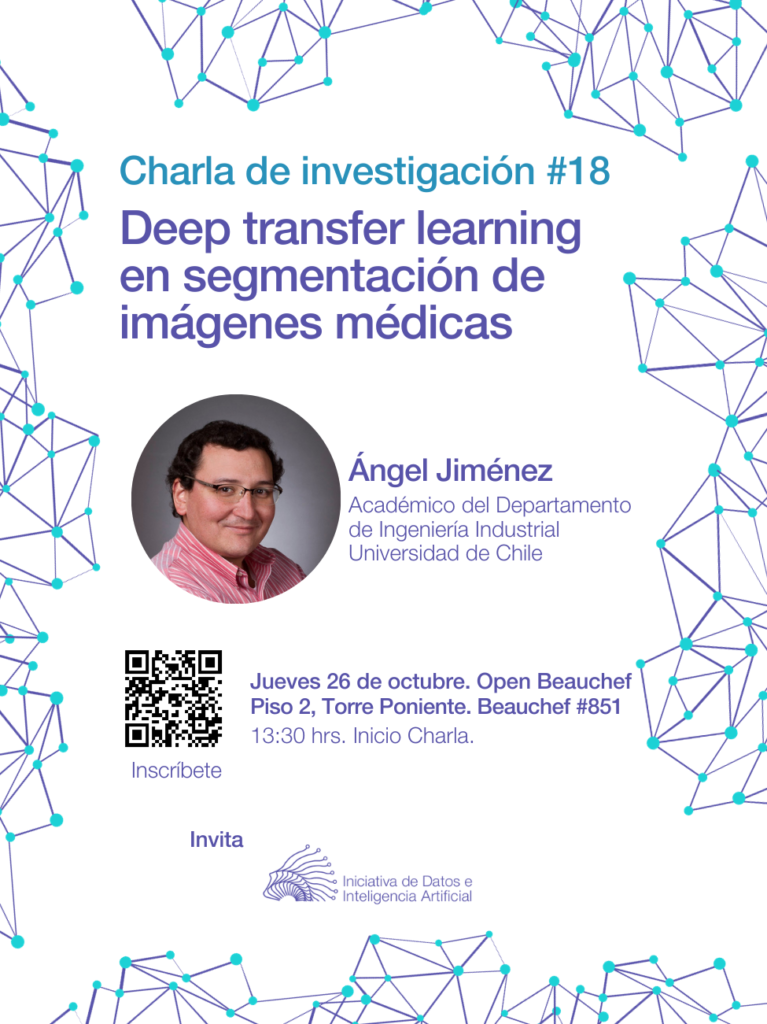
Expone:
- Ángel Jiménez, Académico del departamento de Ingeniería Industrial, Universidad de Chile.
Colaboradores: Germán García, Esteban Reyes, Nicolás Tapia, Cristóbal Ramos, Matías Sepúlveda.
Organizaciones participantes: Departamentos de Ingeniería Industrial e Ingeniería Eléctrica, Universidad de Chile; Hospital Clínico y Departamento de Radiología, Universidad de Chile; Instituto Sistemas Complejos de Ingeniería, ISCI.
Abstract: Perfusion cardiovascular magnetic resonance imaging is used to quantify the heart’s blood flow, which requires the segmentation of the myocardium, a laborious manual task. Deep learning-based methods, the most accurate to accomplish this task, still rely on expensive motion correction steps and require large labeled datasets. This research presents an efficient approach to myocardial perfusion segmentation, utilizing deep learning techniques without motion correction and with minimal data requirements. Through transfer learning, this methodology leverages the wealth of information available from large, publicly accessible cine magnetic resonance datasets, which provide anatomically analogous images to perfusion ones. After pretraining a U-net convolutional neural network, a special fine-tuning scheme optimizes its performance. The parameters learned are the starting point for training on a smaller perfusion dataset from the Clinical Hospital of the University of Chile. We show promising results for developing targeted implementations in real healthcare settings when only small datasets are available.
Inscripción
Actividad de carácter presencial. Cupos limitados.
